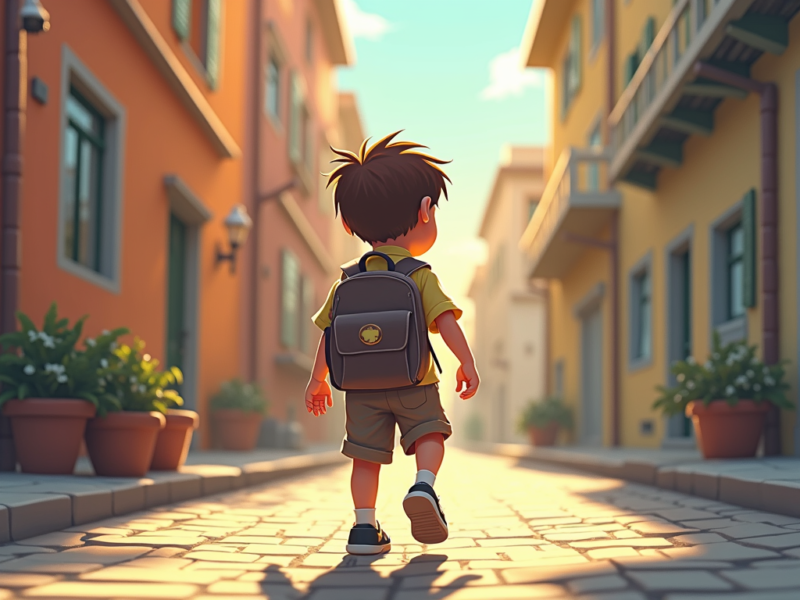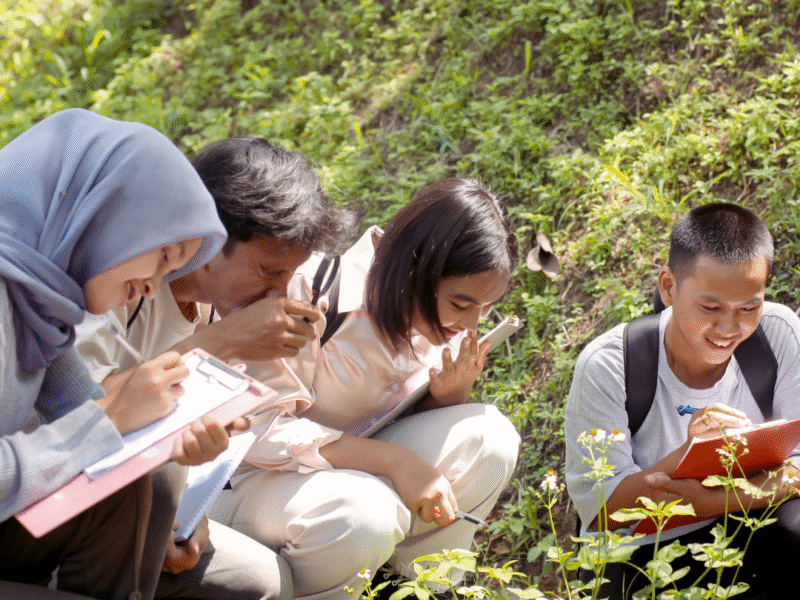A lot of good learners are not born good students. The individual personality is important in the eagerness of the child to learn and the overall disposition with regards to education and schooling; however, most kids who are better students had to be better learners. Most importantly, any learner who has the basic talent and gets the appropriate motivation can be a better learner.
One of the biggest mistakes parents and teachers can make with regards to developing kids and students who are better learners is to restrict learning to the classroom. The classroom is the main source of teaching; academic and social development must extend outside the walls of the classroom if you really want to improve the desire as well as capability of the child to learn.
Encourage Questions
Asking questions is a vital part of learning development; therefore, encourage your children to have an inquiring mind while young. Most toddlers are curious by nature and are likely to ask a lot of questions. You can encourage your kid to ask more questions by taking the time to answer all the queries he or she might have, rather than just brushing them aside.
If your child doesn’t naturally ask questions, you can still stimulate their learning and thinking skills by talking to them often and asking questions throughout the day. For example, if you are traveling in a vehicle, you can ask a toddler to indicate what cars they see on the highway.
Give Room to Explore and Experiment
To motivate a love of learning, it is a smart idea to let your kid explore and try within reasonable limits. As parents, we have the initial instinct to stop our kids from experimenting, as these activities can create a mess in the home. But, if we continuously prevent our kids from trying, they might eventually stop trying new things, and that is not good for learning development.
In some cases, parents can have full-time jobs, making it challenging to give proper attention to their children’s education. In such a situation, parents can think about taking help from agencies like Go Au Pair (https://www.goaupair.com/host-families/best-practices/interviewing-au-pairs/best-live-in-nanny-interview-questions/) or similar au pair firms that can assign a foreign young adult to live with their family, meet the kid’s needs, help with their studies, etc. In this way, parents can rest assured their children’s education is in capable hands.
Also, rather than saying “no” to a toddler who is experimenting all the time, try providing your little one with an alternative if it is appropriate to do so. For instance, if you experiment with pouring water from a highchair during lunchtime, you can teach them that while it isn’t an acceptable performance during mealtimes, you will give him or her the opportunity to play with water whilst taking a bath instead. If your child is bathing, you can give them an array of different-sized plastic containers so that they can experiment with pouring and scooping water.
Encourage Sincere and Open Communication
Encourage your little student to show their opinion on what is happening in terms of their education. Make an open environment where he or she feels contented in expressing their likes, dislikes, and concerns.
When your little one shares his or her view, be sure to validate their feelings, even if they differ from yours. If children are made to seem like their viewpoint doesn’t matter, or he or she is stuck, they are likely to disengage from the process of learning altogether. A good learner will know that their opinion really matters and will feel assured that they are able to openly discuss their educational experience without being put down, ignored, and discouraged.
Focus on the Interests of the Kids
If learning engages kids in subjects and areas of interest, education becomes thrilling, and they will engage in education more. If you want to assist your little one in being a good learner, hearten him or her to explore subjects and topics that entice and fascinate them. For instance, they might be fascinated by science topics. In that case, you might want them to attend science camps (check these half-term camps this February in London, if interested) along with their friends that can help them understand the basics of the topics that intrigue them.
Present and Encourage Diverse Styles of Learning
Each little one has styles and preferences in learning which are ideal for their way of educating. Some kids have an overriding style of learning, while others choose to learn by utilizing a mixture of styles. By assisting your child when it comes to discovering his or her preferred style, you can utilize techniques that will improve his or her rate as well as quality learning.
Enroll Your Toddlers to a Preschool
Enrolling your toddler in preschool programs in East Norriton, PA or elsewhere can provide numerous benefits beyond just acquiring knowledge. Preschool can offer a structured learning environment where children can develop crucial social, emotional, and cognitive skills that lay the foundation for future academic success.
In addition to academic concepts like numbers, letters, and shapes, preschool can foster important life skills such as communication, problem-solving, and teamwork. Moreover, preschool can promote independence and self-confidence by encouraging children to explore, experiment, and express themselves in a supportive setting. Furthermore, the structured routine and social interactions in preschool can help children develop essential social skills such as sharing, taking turns, and making friends. Overall, enrolling your toddler in a preschool like Miss Bloomingdale’s Academy, or another similar quality preschool in your locality, can not only facilitate their learning but also promote holistic development and prepare them for future educational experiences.
Bonus Tip: Expose Children to an Array of Experiences and Environments
While academics are important, it’s equally crucial to expose your children to a wide range of environments and experiences that go beyond studies. Take them to places like zoos, parks, museums, and playgrounds once in a while. Each new setting presents opportunities for discovery and learning, where you can engage with your child by asking questions and sharing your own observations about the environment and what’s happening around you.
It’s also important not to overwhelm your child with constant pressure to study. Instead, encourage them to explore new experiences that can stimulate their creativity. You can try simple activities like splashing in a paddling pool, playing ball in the yard, riding a bike, or baking cookies together. These experiences help them develop physical skills, creativity, and a sense of independence. You can also enroll your child in extracurricular activities such as Gymnastics Classes, music schools, or arts and crafts, as these activities can provide a valuable break from their regular studies, allowing them to explore different interests and talents.
Thus, fostering a love for learning in children involves more than just focusing on their academic achievements. By creating an environment that encourages curiosity, exploration, and diverse experiences, you can help them develop into well-rounded individuals who are eager to learn and grow. Balancing classroom education with opportunities for hands-on experiences, open communication, and extracurricular activities enriches their learning journey and supports their overall development.
Remember, it’s not just about what they learn, but how they learn and experience the world around them. By nurturing their interests and providing varied experiences, you set the stage for a lifelong passion for learning and personal growth.



